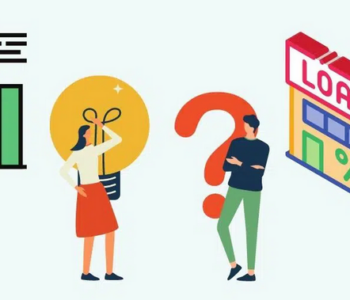 Loans
Loans
Loans: Top Reasons Why Banks Give Out Loans
|
Getting your Trinity Audio player ready...
|
Banks give out many types of loans, from personal to home improvements to major purchases. The majority of these bank loans require some form of collateral (like a car or house) to secure them. And because of the risk involved, borrowers usually pay interest rates higher than those charged by credit card companies.
Banks lend money to individuals or businesses who agree to repay the borrowed funds plus interest over time. Most of these loans are secured through collateral or other forms of security, such as real estate, stocks or bonds. When applying for loans, you usually have to provide detailed financial information about your income, assets and liabilities. Your bank or lender then determines whether you qualify to receive a loan based on those answers.
To increase their revenues: Banks offer new home mortgages for consumers to borrow money to buy houses. The mortgage is an important source of revenue that helps banks make profits. In addition, commercial banks also provide loans to companies to fund expansion and research & development.
Banks Give Out Loans to Earn More From Lending Profitably 
Banks can earn higher returns by investing in long-term securities like U.S. government bonds. This creates additional reserves that they keep at the central bank.
Banks Give Out Loans to Encourage People to Save or Invest
Many banks set up deposit accounts where customers can put money away without being concerned about using it. Customers earn interest on the money whenever it remains idle in the account. Thus, banks attract customers by offering attractive incentives.
To help consumers better manage their finances
Some banks help people with bills and other expenses by giving them credit lines or loans. For example, a person can use his bank card to purchase goods at various stores. He needs to pay off the full amount every month but keeps a part of his payment for future purchases. At the end of each month, he can settle his balance owed.
To protect themselves against risks
Banks must bear the risk when they issue loans. If borrowers do not pay back the loans, the banks will lose money. So, if there is a possibility that borrowers may default, they charge them extra fees called “interest” to compensate for this possible loss. Interest rates vary depending on many factors including the type of borrower, the amount of the loan and how risky the investor considers the loan to be.
To help small business owners get started
Small business owners often need cash to start their ventures and grow. They can apply for loans from banks and other institutions. These loans are often designed to last longer than traditional loans. Because the debt has no fixed term, the owner is free to pay the entire amount back later. Read on to know more about the different types of loans available to entrepreneurs.
To reward good behaviour
Banks sometimes offer special privileges to certain individuals or groups. For example, some banks allow people to take cash out of ATMs after hours when other banks don’t accept checks. Some banks may even waive the service fee for checking deposits.
To share risk
Banks also take advantage of the fact that only one party bears the risk for any given transaction when they invest in securities. All the others are protected by insurance policies. By taking on less risk, the bank earns higher returns. But the customer benefits because the bank spreads the risk across all its customers.
To gain access to funds
The primary purpose of a bank is to provide a safe place where people can store their money. A secondary role of a bank may include providing loans for commercial transactions.
To increase profits
Banks make most of their earnings from interest earned on loans. When banks lend money, they collect interest from those who borrow it. However, banks also charge fees to cover the costs of processing loans. In addition, banks charge lenders fees ranging from 2% – 4% per year.
To serve as an intermediary
Banks also play a crucial role in making sure that buyers and sellers meet properly. They act as intermediaries between parties who want to buy and sell products. This is called financing and it helps businesses expand and prosper.
To protect against risks
Banks will always insure their assets to minimize losses if something goes wrong. So, they have to be extra careful to avoid losing people’s money.
To provide public services
While many think of banks solely as financial organizations, there are thousands of banks around the world. Banks also provide essential public services like helping people open savings accounts, providing micro credit loans, protecting people’s investments through safety deposit boxes, and accepting payments from online merchants.
The Bottom Line
Banks do not just help you manage your finances. Instead, they’re much bigger than this. Banking services range from lending money to opening savings accounts. Banks also help you make international credit card purchases, direct you to loan options and protect you from fraud.






